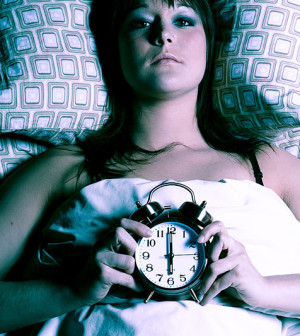Don't Miss
- Double Mastectomy May Offer No Survival Benefit to Women With Breast Cancer
- Toxic Lead Found in Cinnamon Product, FDA Says
- Certain Abbott Blood Sugar Monitors May Give Incorrect Readings
- Athletes Can Expect High Ozone, Pollen Counts for Paris Olympics
- Fake Oxycontin Pills Widespread and Potentially Deadly: Report
- Shingles Vaccine Could Lower Dementia Risk
- Your Odds for Accidental Gun Death Rise Greatly in Certain States
- Kids From Poorer Families Less Likely to Survive Cancer
- Tough Workouts Won’t Trigger Cardiac Arrest in Folks With Long QT Syndrome
- At-Home Colon Cancer Test Can Save Lives
Health Tip: Coping With Sleepwalking
By LadyLively on January 9, 2014


Sleepwalking is a very real disorder that can be dangerous to the sleepwalker and family members.
The National Sleep Foundation says there’s no “cure” for sleepwalking, but there are things you can try to help prevent the problem and keep the sleepwalker safe:
- Get more rest. A major trigger of sleepwalking is sleep deprivation.
- Avoid alcohol and any medications that tend to trigger sleepwalking episodes.
- Create a consistent and relaxing bedtime routine.
- Make sure the sleep environment is safe. For example, don’t allow a child who sleep walks to sleep in a bunk bed.
- Keep doors and windows locked, keep any sharp or breakable objects far from the bed, and place gates above stairways.
Source: HealthDay
Copyright © 2024 HealthDay. All rights reserved.










